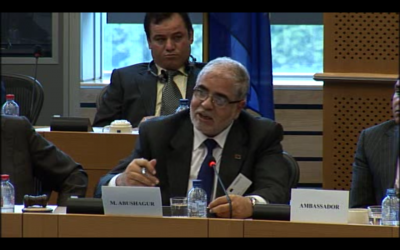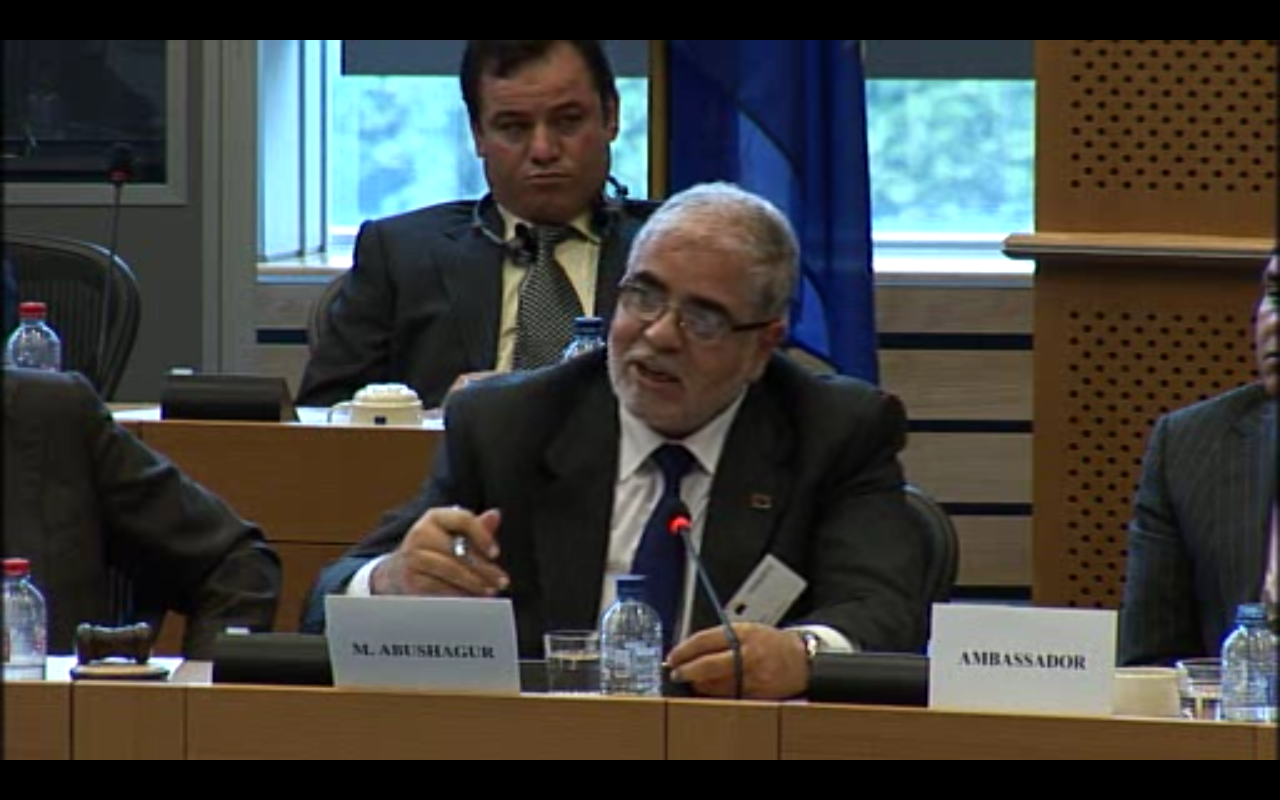Arms, borders, police: security issues in Libya (Libyan Deputy Prime Minister)

(BRUSSELS2) Border security and the control of arms stocks: these are the two priorities in terms of security retained by the Libyan Deputy Prime Minister, Mustafa Abushagur, who spoke yesterday with the deputies who are members of the foreigners of the European Parliament. For this, we must succeed in building an army and a police force, by integrating the autonomous militias. EU support is needed and appreciated.
Border security: to be built ex nihilo
With 4000km of land borders and 2000km at sea, this question is not insignificant. It is even a priority to prevent mass immigration and the trafficking of arms and human beings “, according to the minister. But it is also a considerable challenge. " The border police [is] non-existent ". You have to create it" from scratch ". That's what we do, says Mustafa Abushagur, integrating " young people who took part in the revolution ". And with the help of the EU, which deployed a needs assessment mission. Especially for the southern borders. “This is where most of the immigration goes ". And for the Europeans, this is what concerns them in priority. “We want to prevent new flows of illegal immigration and new tragedies in the Mediterranean Sea said Italian Foreign Minister Giulio Terzi on Monday (May 14). According to him, Europeans understand the " urgent need » there is to prevent this immigration rather than to fight it afterwards.
The control of weapon stocks: avoid the tank in the garden
For the transitional government, and for the future of the country more generally, arms control “After eight months of armed conflict where all Libyans have been implicated in one way or another, is also a security priority. According to the Minister, almost all Libyan households end up with weapons in their homes. " Some even have a tank in their backyard ". So there is " many weapons in nature". The government initially focused on the heavy weapons present in the cities “because they are the most dangerous”. “A large number of measures were taken so well that “there are almost more”, says Mustafa Abushagur. Next step: “we are working with the military police to establish checkpoints to confiscate heavy weapons in the rest of the country. And here we come to the issue of borders, where arms control is " more difficult ». Cooperation with neighboring countries is not necessarily easy either. For example, Algeria was "fussy" to recognize the revolution. Generally speaking, the minister is pointing to the lack of resources.
Limited Libyan Security Force Capabilities: Integrating Militias
The challenge for the future is therefore to build a modern police and army "able to protect the interests of the country ". As far as the police are concerned, structures already exist, the problem is to rebuild them, to revive them.
Thus, the government will continue to pay the salaries of 160 police officers " but they have to come back to work otherwise we will cut wages ". For the army, on the other hand, it is necessary to start from scratch, create the structures and find the manpower. There is a need for reconciliation between the different actors of the revolution. In particular, the difficulty is to give cohesion to the country's security forces. It is therefore necessary to integrate the autonomous militias and the Tuaregs, who represent a quarter of a million people. It is “important because they participated in the revolution ". You have to know what they want. “We would like them to meet to discuss what they want to do in the future”.
Of the 750, 000 have already been registered on the electoral lists, welcomes the minister. This made it possible to have information on their project: 230% would like to participate in the army or the police, 000% would like to exercise a liberal profession ("very good for reviving the economy "). Several workshops have been organized for their integration, with the help and expertise of the EU. The Minister also underlined the efforts already made by the EU to build modern security forces in Libya.
As noted by MEPs, one of the means of strengthening Libyan capacities involves reclaiming the finances monopolized by Gaddafi and scattered all over the world.

